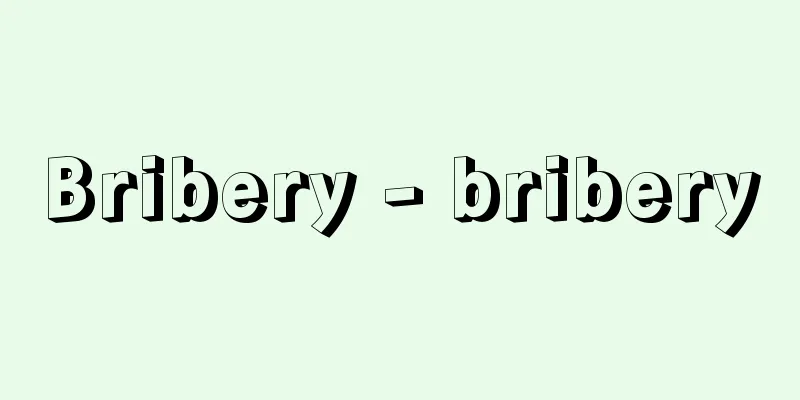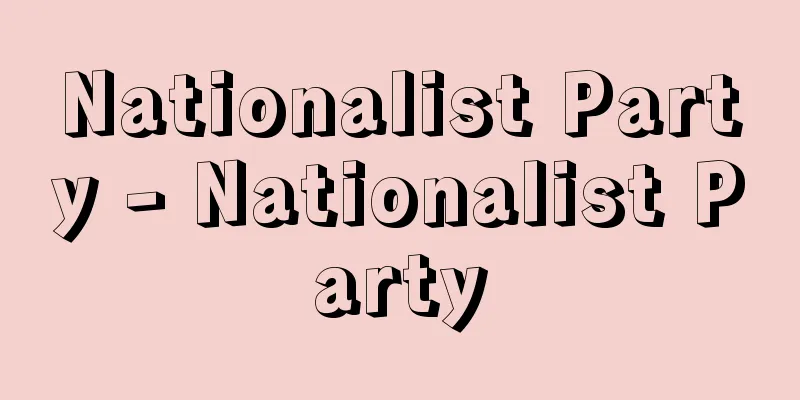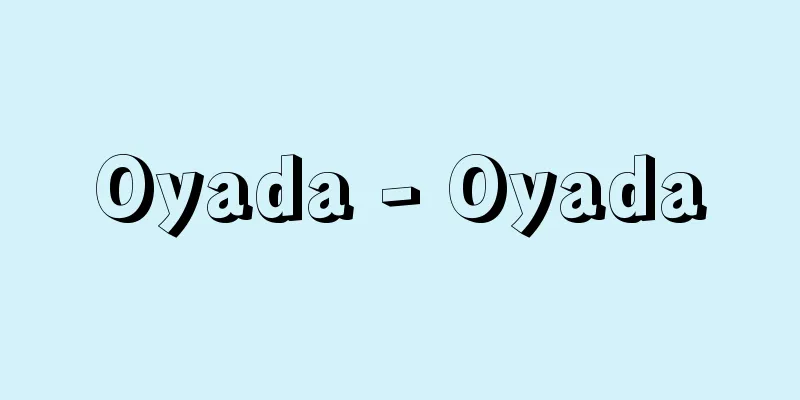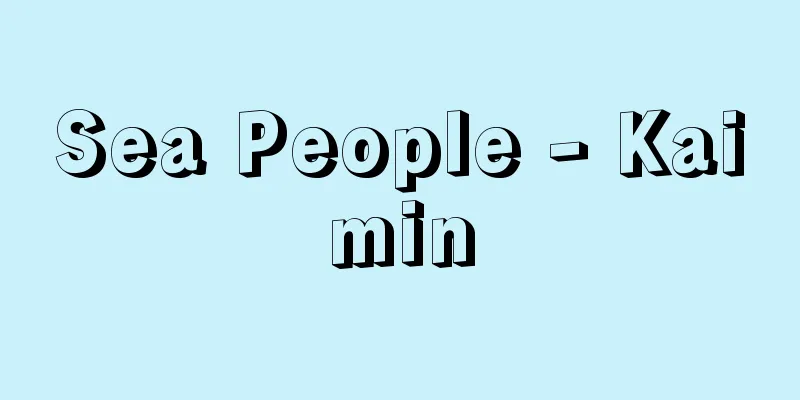Bribery - bribery

|
It is a crime for a person who performs public duties to receive bribes, i.e., illegal benefits, in relation to their duties, or to offer bribes to those in such positions. This crime is a crime that undermines the functioning of the state, and is a type of corruption crime in Chapter 25 of Part 2 of the Criminal Code. It is divided into bribery, which is the crime of receiving bribes, and bribery, which is the crime of offering bribes. As stipulated in the current constitution, national government, including the legislative, executive, and judicial branches, is based on the solemn trust of the people, and public officials involved in these must be servants of the public. If national government is distorted by the rampant use of bribery, the people's trust in national government will be lost, and injustice and corruption will spread throughout society. Therefore, regardless of whether it is Eastern or Western, acts that distort national government or raise suspicions of such actions through illegal benefits such as money are strongly prohibited and are severely punished as crimes. [Tetsuro Nawa] Social BackgroundHowever, as politics involves the distribution of vested interests, there will always be people who flock to these interests or who try to use politics to gain their own interests. It is no exaggeration to say that bribery is an inevitable part of politics. In particular, there has been a never-ending stream of bribery cases, large and small, involving influential politicians, businessmen, and bureaucrats, both before and after the war, which are linked to the structural collusion between the political, financial, and bureaucratic circles in Japan. Nevertheless, in the past, in structural corruption cases caused by the collusion between the political, financial, and bureaucratic circles, the truth was obscured by the exercise of command authority, and criminal responsibility of those at the core of each circle was often not held accountable. In this context, the Lockheed scandal, which came to light at a hearing of the Subcommittee on Multinational Corporations of the U.S. Senate in February 1976, escalated against the backdrop of public criticism of money politics in Japan, to the point where influential politicians and businessmen, including a former prime minister, were convicted of bribery. However, due to Japan's political and economic structure and unique gift-giving culture, there has been a continuous stream of bribery cases that shake the foundations of democracy, such as the Recruit Scandal and the construction company corruption scandal. [Tetsuro Nawa] History of this crimeIn Japan, the Taiho Code (701) from the Nara period already contained provisions for the crime of bribery, but the Provisional Criminal Code, the New Code of Laws, and the Revised Code of Laws also contained provisions of this type from the early Meiji period. The Old Penal Code, a modern criminal code enacted in 1880 (Meiji 13), included provisions for the crime of bribery in the "Crime of Misconduct by Public Officials," but it only provided for the crime of accepting bribes as described below, and did not include provisions for the crime of simple bribery or the crime of giving bribery. In response, the Misconduct Law was promulgated in 1901 (Meiji 34) to expand the scope of punishment, and the current Penal Code, which was promulgated in 1907, provided for the crime of bribery in Chapter 25 of Part 2 as one of the "Crime of Misconduct" (misconduct; changed to "Crimes of Corruption" in the 1995 revision of the Penal Code). However, the original Penal Code only had two types of crimes, simple bribery and simple bribery, so a major revision in 1941 (Showa 16) added the crimes of accepting bribery on request, bribery in advance, bribery of a third party, and bribery after the fact. A subsequent revision in 1958 (Showa 33) created the crimes of facilitating bribery and facilitating bribery. Furthermore, following the Lockheed Scandal, a revision in 1980 increased the statutory penalties for each crime. [Tetsuro Nawa] Each crime typeThe current Criminal Code stipulates the following regarding the crime of bribery of public officials (the Arbitration Act has a similar provision regarding the crime of bribery of arbitrators): Simple bribery is the crime of a public official accepting, requesting or promising a bribe in relation to his/her duties (imprisonment for up to 5 years), while if he/she is asked to do a certain job, it is equivalent to accepting bribes by request (imprisonment for up to 7 years) (Article 197, Paragraph 1). If a person who is planning to become a public official or arbitrator accepts a request and carries out the above act, and actually assumes the position, it is equivalent to accepting bribes in advance (imprisonment for up to 5 years) (Article 197, Paragraph 2). The crime of third-party bribery is when a public official receives a request in connection with his or her duties and causes a third party to provide a bribe, or demands or promises to provide such a bribe, and is punishable by imprisonment of up to five years (Article 197-2). The crime of aggravated bribery is committed when a public official commits an offense under Article 197 or Article 197-2 and thereby commits a misconduct or fails to perform an appropriate act, or when a public official accepts, demands or promises a bribe, or causes a third party to give such a bribe, or demands or promises to give such a bribe, in connection with committing a misconduct or failing to perform an appropriate act in the course of his or her duties, and is punishable by imprisonment for a fixed term of not less than one year (Article 197-3, Paragraphs 1 and 2). The crime of ex post facto bribery is committed when a public official accepts, solicits, or promises a bribe in connection with an act of misconduct or failure to perform an appropriate act in the course of his or her official duties at the request of that person while in office, and is punishable by imprisonment for up to five years (Article 197-3, Paragraph 3). The crime of facilitating bribery is when a public official, at the request of another public official, facilitates another public official to commit an imprisonment offense or to refrain from committing an appropriate act in the course of his/her official duties, or receives, solicits, or promises a bribe as a reward for having done so, and is punishable by imprisonment for up to five years (Article 197-4). The crime of bribery, which covers all of the crimes under Articles 197 to 197-4, is the giving, offering, or promising of a bribe, and is punishable by imprisonment for not more than three years or a fine of not more than 2.5 million yen (Article 198). In addition, any bribe received by the perpetrator or a third party with knowledge of the circumstances will be confiscated, and if it is not possible to confiscate all or part of it, the value of the bribe will be collected (Article 197-5). [Tetsuro Nawa] [References] | | | | | |Source: Shogakukan Encyclopedia Nipponica About Encyclopedia Nipponica Information | Legend |
|
公的な職務を行う者が、その職務に関して、賄賂、すなわち不正な利益を受けたり、これらの職にある者に対し賄賂を贈る罪。本罪は国家の作用を害する罪であり、刑法第2編第25章の汚職の罪の一種。賄賂を受け取る収賄罪と、賄賂を贈る贈賄罪とに分かれる。現行憲法が規定するように、立法、行政、司法といった国政は国民の厳粛な信託に基づくものであり、これに携わる公務員は全体の奉仕者でなければならない。もし国政が賄賂の横行によりゆがめられるならば、国政に対する国民の信頼は失われ、不正や腐敗が社会全体に広がるであろう。そこで、洋の東西を問わず、金銭等の不正な利益により国政をゆがめたり、その疑惑を抱かせるような行為は強く戒められ、犯罪としても重く処罰される。 [名和鐵郎] 社会的背景ところが、政治が利権の配分を伴う以上、その利権を求めて群がったり、政治を利用して自己の利益を図ろうとする人々がつねに現れる。まさに政治には賄賂が付き物であるといっても過言ではない。とくに、日本の政界、財界、官界の構造的な癒着とも関連して、戦前・戦後を問わず、有力な政治家、財界人、官僚がかかわった大小さまざまな贈収賄事件は後を絶たない。それにもかかわらず、かつては、政界・財界・官界の癒着による構造的な疑獄事件においては、指揮権発動などにより、その真相があいまいにされ、各界の中枢にある人々の刑事責任は不問に付される場合がむしろ多かったといえる。このなかで、1976年(昭和51)2月に米上院の多国籍企業小委員会の公聴会で明らかとなったロッキード事件は、日本国内での金権政治批判の世論を背景として、ついに首相経験者をはじめ有力な政治家や経営者が賄賂罪により有罪判決を受けるという事態にまで発展した。しかし、日本の政治経済構造や日本特有の贈答文化とも関連して、その後も、リクルート事件、ゼネコン汚職など、民主主義の根幹を揺るがすような贈収賄事件が後を絶たない。 [名和鐵郎] 本罪の歴史日本では、奈良時代の大宝律令(たいほうりつりょう)(701)のなかに賄賂罪にあたる規定がすでにみられるが、明治初年の仮刑律、新律綱領、改定律例にもこの種の規定が存在する。1880年(明治13)に立法された近代的刑法典たる旧刑法には、「官吏涜職(とくしょく)ノ罪」のなかに賄賂罪の規定を設けていたが、後に述べるような受託収賄罪を規定するにとどまり、単純収賄罪や贈賄罪などの規定を欠いていた。そこで、1901年(明治34)に涜職法が公布されてその処罰範囲が拡大され、これを受けて1907年に公布された現行刑法は、第2編第25章において、「涜職ノ罪」(涜職罪。1995年の刑法改正で「汚職の罪」となる)の一つとして賄賂罪を規定していた。しかし、制定当初の刑法には、単純収賄罪と単純贈賄罪の二つの犯罪類型しか設けていなかったため、1941年(昭和16)の大改正により、受託収賄罪、事前収賄罪、第三者供賄罪、事後収賄罪が追加された。その後、1958年(昭和33)の改正で、斡旋収賄罪(あっせんしゅうわいざい)および斡旋贈賄罪が新設された。さらに、ロッキード事件を契機に、1980年の改正により各罪の法定刑が引き上げられている。 [名和鐵郎] 各犯罪類型現行刑法は、公務員の賄賂罪について次のとおり規定している(仲裁人の賄賂罪については、仲裁法に同様の規定がある)。 単純収賄罪は、公務員がその職務に関して賄賂を収受、要求、約束する罪(5年以下の懲役)で、請託(一定の職務を行うよう依頼)を受けた場合は受託収賄罪(7年以下の懲役)にあたる(197条1項)。なお、これから公務員や仲裁人になろうとする者が請託を受けて上記の行為を行い、現にこの地位についた場合には、事前収賄罪(5年以下の懲役)にあたる(197条2項)。 第三者供賄罪とは、公務員がその職務に関し請託を受けて、第三者に賄賂を供与させたり、その供与を要求、約束する罪であり、5年以下の懲役(197条の2)。 加重収賄罪は、公務員が第197条、第197条の2の罪を犯し、よって不正の行為をしたり、相当の行為をしなかった場合や、職務上不正の行為をしたり、相当の行為をしなかったことに関して、賄賂を収受、要求、約束し、または第三者にこれを供与させたり、その供与を要求、約束する場合に成立し、1年以上の有期懲役(197条の3第1項・2項)。 事後収賄罪は、公務員であった者が、その在職中、請託を受けて職務上不正の行為をし、または相当の行為をしなかったことに関して、賄賂を収受、要求、約束する罪であり、5年以下の懲役(197条の3第3項)。 斡旋収賄罪は、公務員が、請託を受け、他の公務員をしてその職務上不正の行為をさせ、または相当の行為をさせないように斡旋すること、またはしたことの報酬として、賄賂を収受、要求、約束する罪であり、5年以下の懲役(197条の4)。 贈賄罪は、第197条から第197条の4のすべての罪につき、賄賂を供与したり、申込、約束する罪であり、3年以下の懲役または250万円以下の罰金に処せられる(198条)。 なお、犯人または情を知った第三者の収受した賄賂は没収され、その全部または一部を没収することができないときは、その価額を追徴される(197条の5)。 [名和鐵郎] [参照項目] | | | | | |出典 小学館 日本大百科全書(ニッポニカ)日本大百科全書(ニッポニカ)について 情報 | 凡例 |
>>: Weil's disease (Leptospirosis)
Recommend
Collema complanatum (English spelling)
… [Hiroyuki Kashiwatani]. … *Some of the terminol...
Aoshima Shell Mound
...The area is mostly made up of lowlands in the ...
POP - Pop
A protocol used when email software receives email...
Ishikawa Koto
Years of birth: Years of birth and death unknown. ...
Orcagna - Orcagna (English spelling)
Date of birth and death unknown. Italy's most...
Industrial chemistry - kougyoukagaku (English spelling) industrial chemistry
A field of study that studies methods for chemica...
beefsteak plant
…It is a herbaceous plant of the genus I. herbsti...
Kin Shuk-ji
…In a broad sense, it refers to the Sirin school....
Esteria - Esteria
Please see the "Shrimp" page. Source: E...
Tentative - tentative
〘noun〙① Something that is made temporarily. Also, ...
Precipitate labor
...In many cases, it is complicated by some kind ...
Neapolis (Soviet Union) (English spelling)
...It serves as a transportation hub for the Crim...
Oda - Oden
A dish made by stewing vegetables and fish paste i...
Metaphosphoric acid (Metaphosphoric acid)
The chemical formula is (HPO 3 ) n . Due to its sh...
Stadium - Kyogijo
Generally, it means an athletics stadium with spe...









